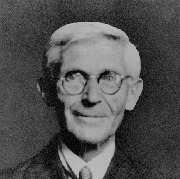Yesterday I flew in to Geneva from Jeddah, Saudi Arabia, arriving in Geneva in the late afternoon. I was delighted to be here (again), after a short visit in Jeddah. I had passed through Switzerland on my way to the magical kingdom in order to revisit old stomping grounds. These same grounds (aka the city of Lausanne) are the background of my current novel in progress. I am beyond fortunate to have been able to revisit this wonderful place.
On my return through Switzerland, I already had most of the details that I wanted to collect, so I had no plan to leave Geneva–save, perhaps, to visit the Château de Coppet-–belonging once to Madame de Staël, a French woman of letters of Swiss origin. (Her lifetime overlapped with the events of the French Revolution and the Napoleonic era). It is allegedly an easy trip, even in this terribly cold May.
I did not go. As so often happens to travelers, I fell ill. My illness, which I hope will abate by tomorrow when I have a long flight, is such that all I could do was drag myself outside today to see the nearest museum, the Museum of Natural History. I stayed there for a couple of hours and then came back to the hotel to rest.
However, that visit was productive. I learned a few things. Among them, I learned about Jules Favre, a naturalist who studied at the Academy of Neuchâtel. In 1907, he joined the team at the Museum of Natural History in Geneva. There he served as conservationist and paleontologist until 1952. I was most struck by what he did after retiring. From that point on, he devoted himself to the study of mushrooms. Not only did he dedicate himself to that study, his wife Jeanne, who was quite the mushroom expert and watercolor painter, painted pictures of all the mushrooms they documented together. He died in 1959.
Why do I care so much about Jules Favre, aside from respecting a scientist of the natural world? He shows me that if we want to accomplish anything, like writing a book, we have to focus on that one thing, that one project. People will distract us, tell us what other things we simply “must” do, what places we must see, what classes we must take. There are always good reasons for good advice.
But projects do not get finished without intensity of focus. I was very glad to learn about the Favres and their passion for mushrooms. They inspire me.




